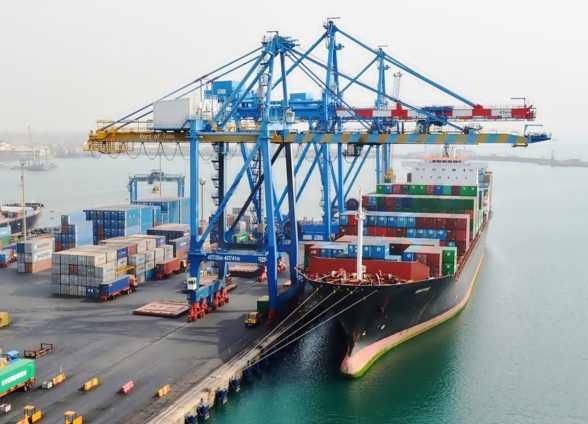The Communications Director of the Ghana Union of Trades Association (GUTA) has partly attributed the rate of corruption at the ports to the many tax components slapped on goods shipped into the country.
Joseph Paddy on Joy FM’s Super Morning Show noted that the duties charged on products sometimes cost more than the goods being shipped.
The situation, according to him, discourages importers from paying the revenue.
He explained that importers tend to employ alternative means which include corrupt activities to prevent paying enormous taxes.
“When you position your duty rate to about 50%. So you import 100,000 worth of products and you are paying 50,000 as a duty. At times, the cost of the tax is even more than the cost of the item.
“You buy a corolla for about $2,000 and you will come and pay a duty of about $4000. So the tax element is even more than the product and it is only in this country that you can find that. And that is why the compliance level is low,” he said on Tuesday.
Mr Paddy, therefore, called for a reduction in duties at the port.
According to him, the shady deals that transpire to clear imported goods through the back door will be minimised.
“There might be corruption but it will be minimised because if the rate is lower, why would I want to see a third person to sort me out?
“I can afford it [the duty] so obviously I will use the right channels to pay. So if they make the rate lower, obviously the compliance level will go up and that is what we’ve been calling for,” he stated.
Background
The country’s ports have for years been seen to be a den of corruption.
Several investigations including the undercover investigations by ace investigative journalist Anas Aremeyaw Anas showed how some Customs officers circumvented processes to make money out of the system.
Goods imported spend several days, weeks sometimes months at the Ports with importers huffing and puffing over delays.
They then pay huge monies to officers in order to have their goods cleared as quickly as possible.
Although the incumbent government has through its ‘Paperless System’ digitised the country’s ports, the menace still persists six years on.
Latest Stories
-
Dr Nduom hopeful defunct GN bank will be restored under Mahama administration
17 minutes -
Bridget Bonnie celebrates NDC Victory, champions hope for women and youth
25 minutes -
Shamima Muslim urges youth to lead Ghana’s renewal at 18Plus4NDC anniversary
1 hour -
Akufo-Addo condemns post-election violence, blames NDC
2 hours -
DAMC, Free Food Company, to distribute 10,000 packs of food to street kids
3 hours -
Kwame Boafo Akuffo: Court ruling on re-collation flawed
3 hours -
Samuel Yaw Adusei: The strategist behind NDC’s electoral security in Ashanti region
3 hours -
I’m confident posterity will judge my performance well – Akufo-Addo
3 hours -
Syria’s minorities seek security as country charts new future
4 hours -
Prof. Nana Aba Appiah Amfo re-appointed as Vice-Chancellor of the University of Ghana
4 hours -
German police probe market attack security and warnings
4 hours -
Grief and anger in Magdeburg after Christmas market attack
4 hours -
Baltasar Coin becomes first Ghanaian meme coin to hit DEX Screener at $100K market cap
5 hours -
EC blames re-collation of disputed results on widespread lawlessness by party supporters
5 hours -
Top 20 Ghanaian songs released in 2024
6 hours

